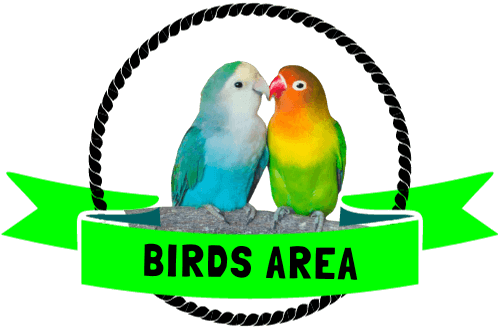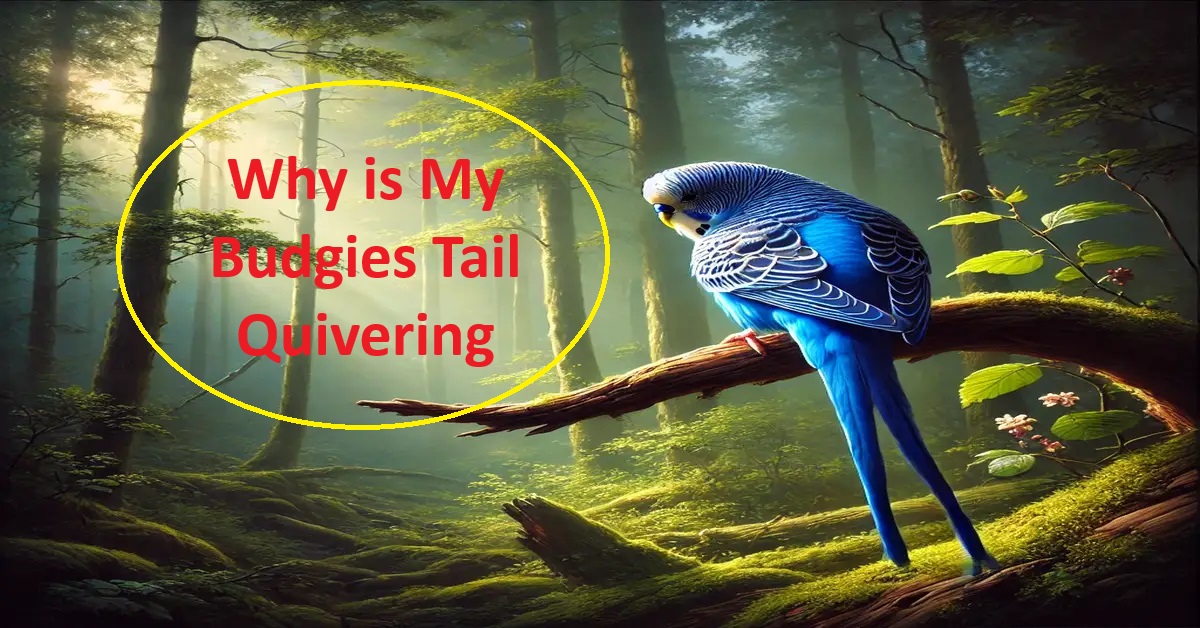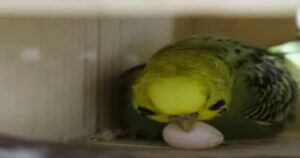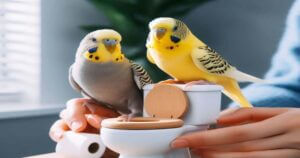Why is My Budgies Tail Quivering?
The tail of your budgie might be quivering due to excitement, fear, or illness.
As a bird owner and wildlife enthusiast, I’ve spent countless hours observing my feathered friends’ little quirks and habits.
One common behaviour among budgies (also known as parakeets) is tail quivering, which can be concerning if you’re not sure why it’s happening.
So, why does a budgie’s tail quiver? Simply put, tail quivering can mean various things, ranging from excitement to potential health issues.
However, in this article, I’ll discuss the possible causes of a budgie’s tail quivering and how to identify whether it’s normal behaviour or a sign of something more serious.
What is Tail Quivering in Budgies?

Tail quivering in budgies refers to their tail feathers’ rapid, back-and-forth movement.
It’s like a small shake or vibration. Budgies often use their tails to communicate or maintain balance, so quivering can be a part of their natural behaviour.
Is Tail Quivering Normal for Budgies?
Yes, tail quivering can be normal in certain situations.
Budgies may quiver their tails when they’re excited, happy, or adjusting their posture. However, if it’s constant or paired with other unusual signs, it might indicate an underlying issue.
Reasons Why a Budgie’s Tail Quivers

Excitement or Happiness, Respiratory Infections, Stress or Fear, Temperature Changes, Fatigue or Sleepiness, Mating Behavior, Nervous System Issues.
Here are the reasons why a budgie’s tail quivers, explained in more detail:
1. Excitement or Happiness
Budgies express excitement through tail quivering.
When a budgie is happy, you might see its tail quiver, especially during playtime or when receiving treats. This behaviour is typical when interacting with their favourite toys or hearing their owner’s voice.
2. Respiratory Infections
Tail quivering can be a sign of a health problem, especially respiratory infections.
Budgies with respiratory issues like Aspergillosis or bacterial infections may exhibit tail quivering while trying to breathe more deeply. This is often paired with wheezing, sneezing, or nasal discharge.
3. Stress or Fear
Fear or stress can cause budgies to quiver their tails.
Loud noises, sudden movements, or new surroundings can make your budgie nervous. Tail quivering here is a sign of stress. Reducing stressors and providing a calm environment can help.
4. Temperature Changes
Cold environments can make budgies quiver their tails as they try to keep warm.
Budgies are sensitive to temperature. If exposed to drafts or a cold environment, they may start to shiver, including quivering tails. To prevent this, ensure a warm, consistent temperature.
5. Fatigue or Sleepiness
Tail quivering can also indicate that the budgie is tired or sleepy.
Budgies often quiver their tails when ready to rest, especially after an active play session. This harmless quivering is usually followed by the bird settling down for a nap.
6. Mating Behavior
Male budgies may quiver their tails during the mating season as part of courtship displays.
Males often use tail quivering, chirping, and feather fluffing to attract females. This behaviour is typically seen in healthy, mature males during breeding.
7. Nervous System Issues
In rare cases, tail quivering may be due to a nervous system problem.
If your budgie’s tail is constantly quivering and is coupled with balance problems, seizures, or other unusual behaviours, it could be a sign of a neurological issue. A vet check-up is crucial in such cases.
When to Worry About Tail Quivering
While occasional tail quivering is normal, you should be concerned if:
- It happens constantly, even when the budgie is resting.
- It’s paired with symptoms like lethargy, weight loss, or lack of appetite.
- There’s abnormal breathing, puffed-up feathers, or unusual droppings.
These signs may point to health issues that require immediate attention.
How to Help Your Budgie if the Tail Quivers Often
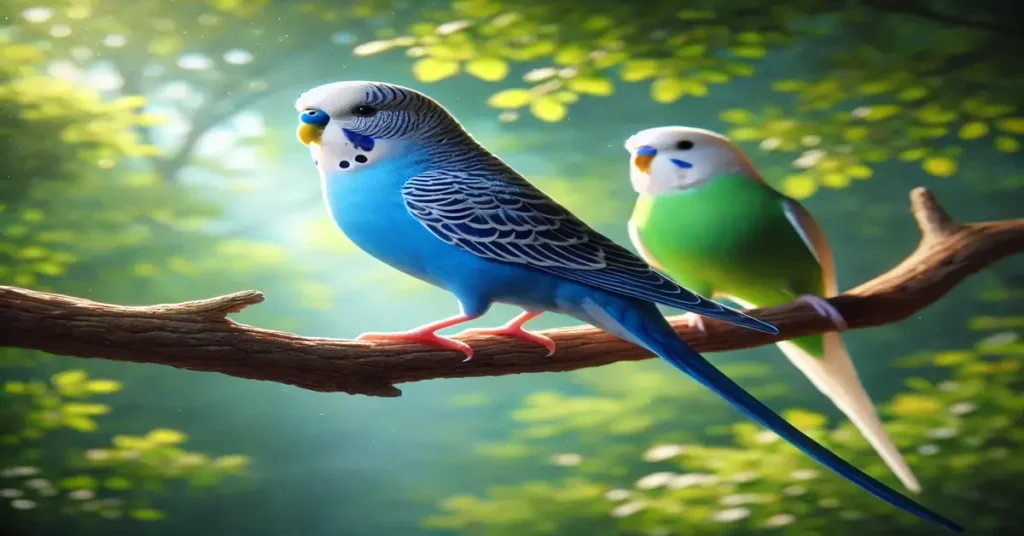
Budgies, or parakeets, are known for their bright feathers and cheerful behaviour. If your budgie’s tail is quivering, addressing this promptly is essential to ensure their health and happiness.
Observation & Analysis
Begin by observing the frequency and context of the quivering. Is it constant, or does it occur during specific activities? Check for other behaviours like restlessness, changes in appetite, or vocalization shifts. This can help identify the possible causes.
Consult an Avian Vet
If you’re unsure about the cause, it’s best to consult an avian vet. They can conduct a thorough check-up, suggest tests, and offer appropriate treatments. Early intervention can prevent potential health issues.
Make Environmental Adjustments
- Cage Size: Ensure enough space for movement and add perches of different sizes.
- Cage Placement: Keep the cage away from drafts, direct sunlight, or loud noises.
- Temperature & Humidity: Maintain a comfortable temperature and humidity level.
- Cleanliness: Regularly clean the cage and provide fresh food and water.
Provide Mental & Physical Stimulation
- Interactive Toys: Offer toys that promote play and exploration. Rotate toys regularly.
- Training & Bonding: Engage in simple training and social interaction to build a strong bond.
- Flights & Playtime: Allow safe, supervised flights and playtime to stimulate natural behaviours.
Addressing these aspects can create a healthier, more enriching environment for your budgie. If tail quivering persists, consult a vet for tailored advice.
Frequently Asked Questions For Why Is My Budgies Tail Quivering?
1. Can dehydration cause my budgie’s tail to quiver?
2. Do budgies quiver their tails during molting?
3. Is tail quivering common in older budgies?
4. Could diet deficiency cause tail quivering?
Wrap Up
Tail quivering in budgies can be a normal reaction to excitement, temperature changes, or fatigue.
However, it could also signal stress, respiratory problems, or more severe health concerns. The key is to monitor your budgie’s overall behaviour, provide a comfortable environment, and consult a vet if symptoms persist.
Thanks.
